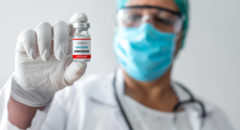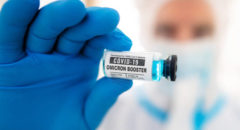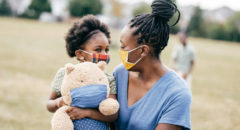In a candid and insightful panel discussion, BlackDoctor.org brought four prominent Black health care professionals together to discuss the lessons learned from the COVID-19 pandemic, particularly focusing on vaccine confidence and health equity in the Black community. The panel, moderated by the co-founder of the Black Coalition Against COVID: Dr. Reed Tuckson, included Dr. Virginia Caine, Dr. Randall Morgan Jr., and Dr. Lauren Dungy-Poythress, each bringing unique perspectives from their respective fields.
The conversation began by addressing the initial challenges faced in getting the Black community to heed COVID-19 prevention guidance and accept vaccines. Dr. Virginia Caine, the 125th President of the National Medical Association, highlighted the root causes, stating, “Unfortunately, we’ve had long-term racial injustice and culture insensitivity experienced by a lot of minorities, which has supported a much higher level of COVID-19 vaccine hesitancy.” She also pointed out the impact of misinformation and access issues, noting that many patients lacked access to primary care providers who could provide accurate information about vaccine safety.
Dr. Lauren Dungy-Poythress, speaking from her experience as a maternal-fetal medicine specialist, addressed the specific concerns of pregnant women. She explained, “’Is it gonna be safe for my baby?’ primarily were the concerns. It wasn’t about what I need to be safe for me. [The fear is] ‘I take this medicine, and then I get some unfortunate birth defect or abnormality with my baby.’”
The panel discussed the importance of transparent communication and acknowledging historical injustices while promoting vaccine confidence. Dr. Dungy-Poythress emphasized, “I think it’s very important to realize there’s reason for mistrust out there, and we can’t just disavow it and dismiss it and push it to the side. We have to acknowledge that it’s there, why it’s there, that it’s ongoing, and there’s reasons that that’s ongoing, and it’s affecting health disparities across the board.”
Dr. Randall Morgan Jr., the executive director of the W. Montague Cobb/NMA Health Institute, highlighted the role of Black health care professionals in building trust. He noted, “We have to work on both ends of the spectrum to try to make sure that the childhood vaccinations are given in all states at the appropriate times. And so that means the more of a coalition working with the pediatricians as well.”
The discussion then turned to effective strategies among health care professionals to increase vaccine uptake in the Black community. Dr. Caine shared, “We saw a major shift as more of our black health care professionals started [educating] our patients.” She also emphasized the importance of meeting people where they are, stating, “We need to go where the patients are.”
The panelists agreed on the crucial role of partnerships, particularly with faith-based organizations. Dr. Tuckson observed, “I think that one of the things that I noticed, the effectiveness of was, to have the physician or the health professional side by side with the pastor at the church.”
The conversation also addressed the challenges of keeping up with rapidly evolving information during the pandemic. Dr. Dungy-Poythress admitted, “At the beginning, I didn’t feel like I was on top of anything. I was just praying and moving forward the best I could.” Dr. Morgan shared his experience with staying informed through weekly updates from the National COVID Network, which helped him “be really on top of all the changes and also understood which clinical trials were most promising.”
A significant concern raised during the discussion was the accessibility of COVID-19 treatments, particularly for uninsured individuals. Dr. Caine highlighted the issue with Paxlovid, stating, “[The] CDC ended their Bridges program that would provide free medications for you if you had no insurance and you couldn’t get it. And do you know what the cost of [Paxlovid] is? It’s nearly $1,500.”
The panel also addressed the ongoing challenges of vaccine hesitancy and the importance of continuing education efforts. Dr. Morgan noted, “Today, the COVID vaccine hesitancy that is present stems more from today’s health inequities than it did from the historical inequities.”
As the discussion concluded, Dr. Tuckson emphasized the ongoing responsibility of Black health professionals, stating, “We have issues and challenges to help protect the health of our people, starting again tomorrow and the day after that and the day after that. And if the pandemic and if COVID wasn’t bad enough, think about the burden of preventable chronic illness that was pre-COVID and certainly has been exacerbated and is with us today.”
The panelists agreed on the need for continued engagement with the community, partnerships with faith-based organizations, and the importance of building trust through transparent communication. They also stressed the significance of addressing current health inequities and ensuring access to care and treatments for all members of the Black community.
As Dr. Tuckson concluded, “I am so proud to be a Black health professional—I love being a Black health professional and all that the responsibilities and the accountabilities it entails.” This sentiment echoed the panel’s commitment to improving health outcomes and building vaccine confidence in the Black community, not just for COVID-19 but for all aspects of health care.









